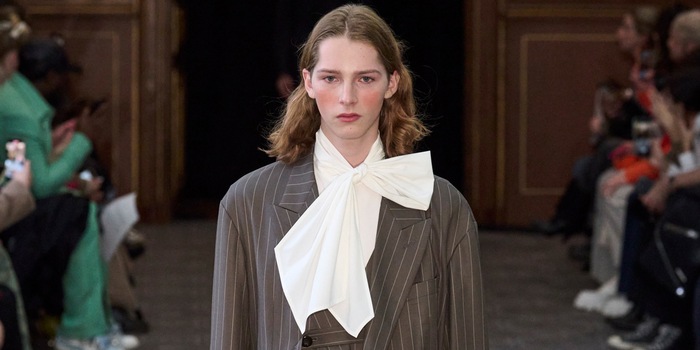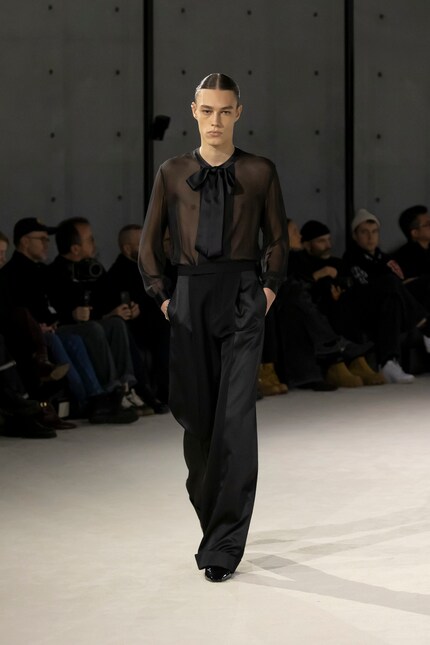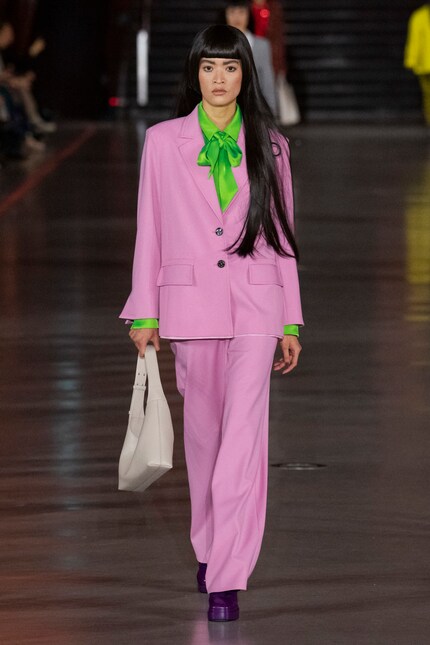
Background information
Fashion lingo: Haute couture and prêt-à-porter – which is which?
by Laura Scholz

What looks like a simple bow at first glance has quite a remarkable history. Featuring cats, ties and Coco Chanel.
The history of the popular bow dates back to the 18th century. Back then, garments were supposed to be one thing above all: opulent. So both men and women didn’t hold back when it came to giving their shirts, blouses and dresses this decorative twist. In addition to expensive lace neckerchiefs – also known as cravats – soft, opulent bow ties were all the rage. Named after the Duchess Louise de La Vallière, the accessory made a name for itself as a lavallière.
A British newspaper in the early 1930s was the first to use this less-than-elegant term to describe the neck ribbon. Instead of a French duchess, it pays tribute to bog-standard domestic cats, which were often adorned with a bow around their neck – at least on special occasions. Pussycat bow or pussy bow caught on.
Both Coco Chanel and Yves Saint Laurent took a shine to the small accessory with a big effect and regularly incorporated it into their collections in the 1950s. For the first time since its beginnings in the 18th century, the lavallière or pussy bow once again enjoyed great popularity and has since become an integral part of mainstream fashion.


As women fought for increasingly important positions in their work life in the 1960s and 70s, the blouse became a symbol of emancipation. Deemed a feminine equivalent of the tie, the bow began its triumphant attempts to crack the glass ceiling.
In the «Fashion Lingo» series, I try to shed light on the dark that is language in the fashion industry. If you occasionally end up lost in translation, I’m sure I can help – drop me a line in the comments.
Header image: Ujoh Fall/Winter 23 via Spotlight/Launchmetrics
Always in the mood for good hits, great trips and clinking drinks.
Interesting facts about products, behind-the-scenes looks at manufacturers and deep-dives on interesting people.
Show all